Understanding Holistic Approaches in Pediatric Therapy
Holistic approaches in pediatric therapy recognize that a child's development is a complex, interconnected process involving physical, emotional, social, cognitive, and spiritual factors. These strategies emphasize treating the whole child, fostering overall well-being, and addressing root causes of health issues rather than focusing solely on symptoms. This article explores the principles, benefits, and practical applications of holistic therapies, highlighting their pivotal role in promoting healthier, more resilient children.
Foundations of Holistic Pediatric Care
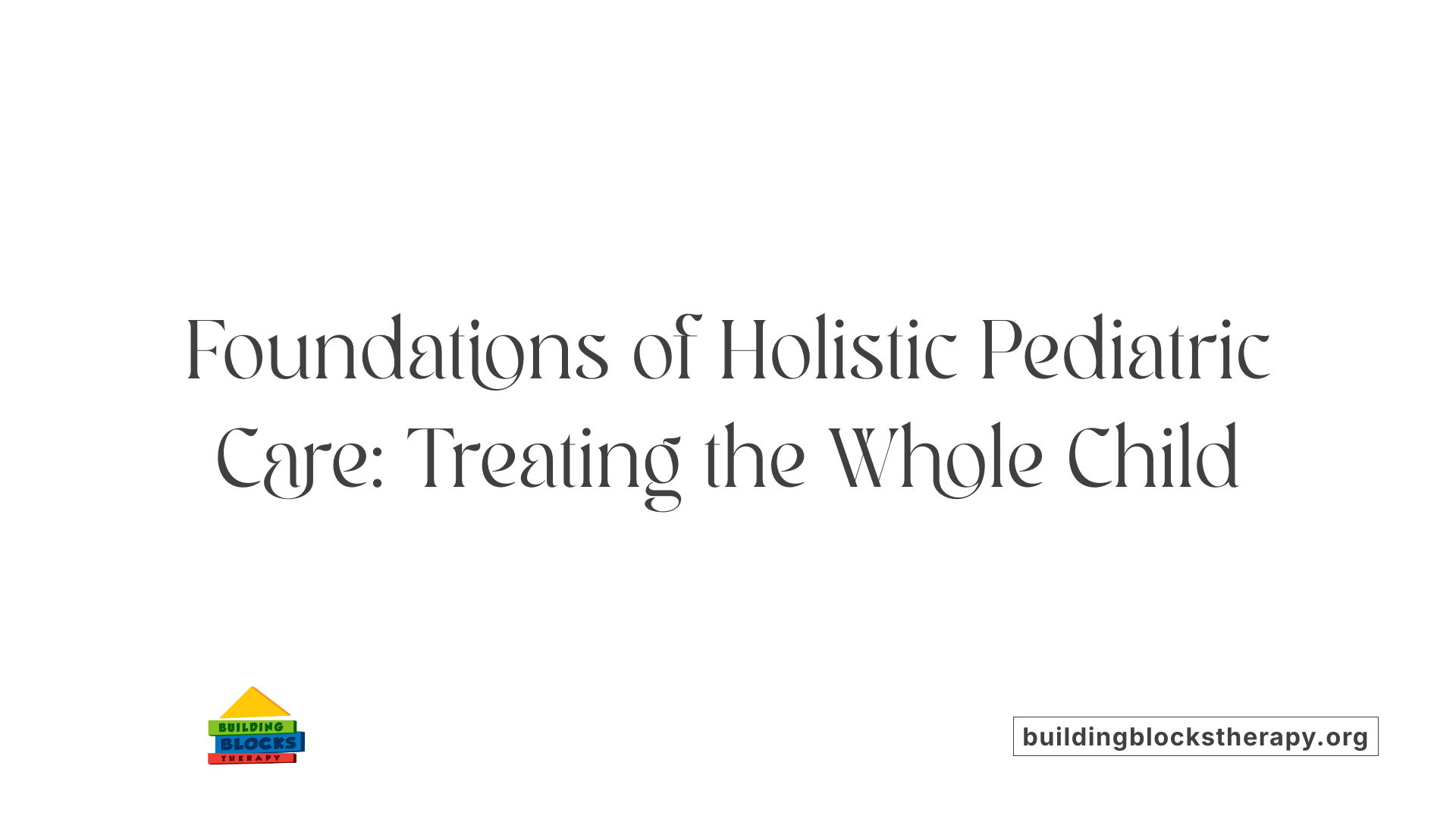
How do holistic strategies improve health outcomes for children?
Holistic pediatric care focuses on more than just treating medical conditions. It considers all aspects of a child's development—physical, emotional, social, and cognitive—creating a comprehensive approach to health. By addressing these interconnected areas, holistic strategies help children achieve better overall well-being.
One of the primary benefits of this approach is the emphasis on family involvement and community support. Engaging families as active partners ensures that routines, environments, and emotional needs are aligned with therapeutic goals. Community initiatives, such as school-based wellness programs or mobile clinics, help extend holistic care beyond the clinic, making health support more accessible.
In addition, integrating psychological care alongside physical treatments improves the child's ability to manage chronic illnesses and mental health challenges. This includes therapies like Cognitive Behavioral Therapy (CBT), play therapy, and mindfulness practices, which help children develop emotional resilience, improve self-regulation, and foster positive social skills.
Nutritional and physical activity strategies complement these efforts by promoting brain health, stabilizing mood, and reducing stress. Approaches like nutrient-rich diets, omega-3 fatty acids, and regular movement—playing outside, swimming, or yoga—significantly support development.
Furthermore, gentle, hands-on therapies such as CranioSacral Therapy and art or music therapy assist in emotional regulation and physical relaxation. When combined with conventional medicine, these therapies offer a more rounded treatment plan.
Ultimately, holistic care creates a supportive environment that nurtures each child's unique needs. This approach not only addresses immediate health concerns but also builds resilience, leading to healthier, happier children and stronger communities.
Core Principles and Philosophical Foundations
Holistic approaches to children's mental health and development are built on the fundamental idea of treating and nurturing the entire child. This means paying attention not only to physical health but also to emotional, social, cognitive, and spiritual factors that influence growth. Each aspect of a child's development is interconnected; progress or difficulties in one area can affect others. For example, emotional regulation can impact social skills and vice versa. Recognizing this interconnectedness forms the backbone of holistic care.
Support systems for children are personalized and comprehensive, aiming to meet their unique needs and strengths. Therapies such as CranioSacral Therapy, mindfulness, nutrition, and movement work together to foster overall well-being. Creating a safe and nurturing environment with family, educators, and community involvement further enhances development. These environments promote trust, safety, and positive relationships, which are crucial for emotional security.
A holistic approach also emphasizes ethical and environmental awareness, fostering values like empathy, resilience, and respect for nature. It integrates experiential learning and creative therapies to stimulate multiple areas of development simultaneously. Children are encouraged to explore their interests and build confidence through play-based and child-led activities, making learning engaging and meaningful.
At its core, the philosophy of holistic child care promotes understanding each child's individual journey. It advocates for supportive, adaptable systems that nurture emotional resilience, cognitive growth, and social competence. This approach aims to prepare children not just for academic success, but for lifelong health, confidence, and well-roundedness, ensuring they develop the skills needed to thrive independently and in community.
Applying Holistic Strategies to Support Developmental Milestones
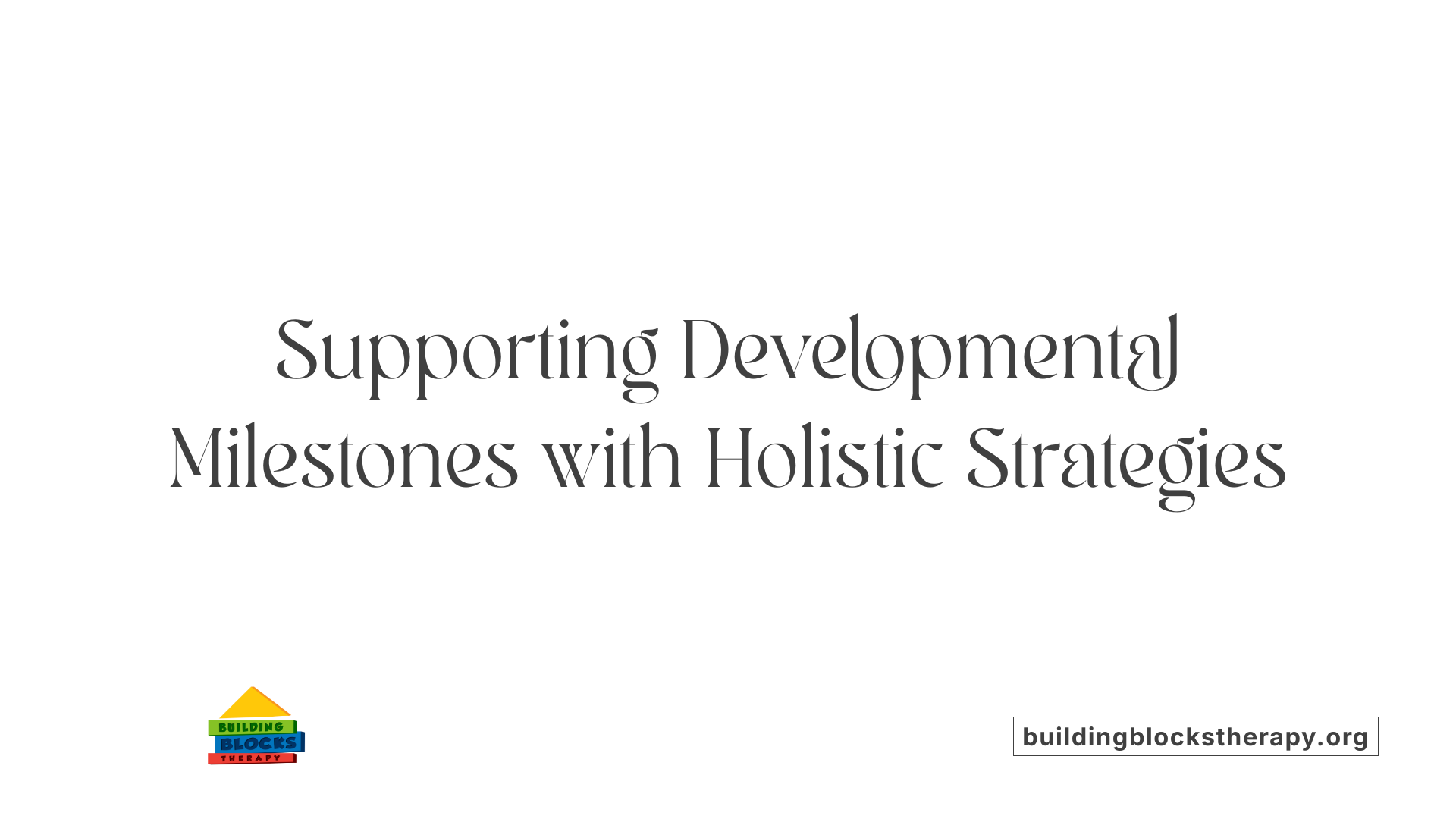
How does a holistic approach support a child's developmental milestones and overall health?
A holistic approach to pediatric care emphasizes understanding and nurturing all areas of a child's growth—physical, emotional, cognitive, and social. By considering the child as a whole, rather than just isolated symptoms, this method ensures support for interconnected development pathways.
Engaging, play-based learning is central to this approach. Activities tailored to a child's interests foster motivation, creativity, and social skills, making learning an enjoyable experience. Play not only stimulates cognitive development but also builds confidence and emotional resilience.
Building emotional resilience is achieved through supportive relationships, creative therapies like art and music, and techniques such as meditation, which promote self-awareness and emotional regulation. These strategies help children cope better with stress and challenges, laying a foundation for lifelong mental health.
Integral to supporting overall health are nutrition, physical activity, and routine health screenings. A balanced diet rich in omega-3 fatty acids, vitamins, and minerals supports brain development and emotional stability. Regular physical activity increases endorphins, reduces anxiety, and boosts overall mood and resilience.
Routine health assessments and early intervention are critical in identifying potential developmental delays or health issues. These proactive measures enable timely support, ensuring children reach important milestones and maintain optimal health.
In essence, combining engaging activities, emotional support, proper nutrition, and preventive care creates a comprehensive framework. This nurtures balanced growth, helps reduce health disparities, and builds a strong foundation for a child's future success and wellbeing.
Benefits Over Traditional Therapy Methods
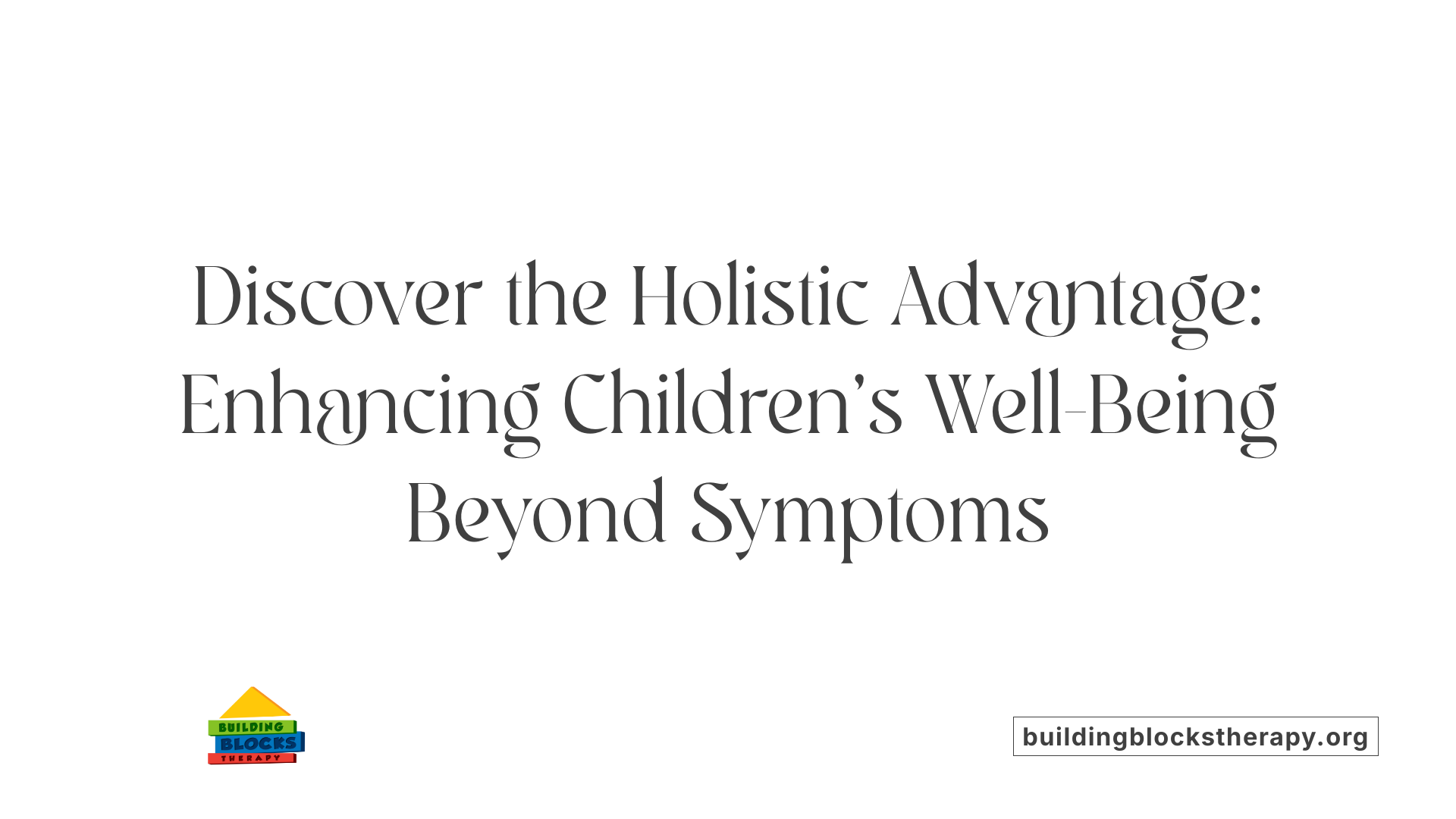
What are the benefits of holistic versus traditional therapy methods for children?
Holistic therapy approaches for children present several advantages compared to traditional methods. Instead of focusing solely on symptoms or specific illnesses, holistic care addresses the child's overall well-being—physical, emotional, social, and environmental factors. This comprehensive view allows practitioners to identify and treat underlying causes of health issues, potentially leading to more sustainable improvements.
One significant benefit is the emphasis on preventive and early intervention practices. By nurturing all areas of development, holistic therapy helps promote resilience and emotional regulation before problems become more severe. This proactive stance supports long-term health and well-being.
Holistic treatment plans are highly personalized, involving collaboration with families, and often integrating complementary therapies such as acupuncture, yoga, mindfulness, and nutrition counseling. These approaches can enhance emotional regulation, social skills, and cognitive function while also addressing issues like anxiety, attention problems, or behavioral challenges.
Furthermore, the mind-body connection in holistic care highlights that mental health and physical health are deeply intertwined. Supporting both simultaneously can lead to better overall health outcomes and improve quality of life.
In contrast, traditional therapy mainly aims at diagnosing and treating immediate symptoms through pharmaceuticals or specific protocols. While effective in treating particular conditions, it may not address root causes or promote long-term resilience.
Overall, holistic therapy aims to foster long-term health by nurturing all facets of a child's development, offering tools for sustained well-being beyond symptom management.
Enhancing Wellness Through Multiple Strategies
How does a holistic approach support a child's overall wellness?
A holistic approach to pediatric care considers all aspects of a child's development—physical, emotional, cognitive, and social—acknowledging that these areas are interconnected. By addressing each facet, this approach promotes comprehensive well-being and helps prevent health issues before they escalate.
What role does nutritional support and diet play?
Proper nutrition is fundamental in holistic care. Emphasizing a balanced, nutrient-rich diet supplies essential vitamins, minerals, and healthy fats like omega-3s, which are vital for brain development and mood regulation. Avoiding artificial additives and pesticides can reduce hyperactivity and attention issues. Nutritional therapy often includes nutrient-dense foods such as fish rich in EPA and DHA, fiber vegetables, and quality proteins, all of which support brain health, growth, and emotional stability.
How do physical activity and emotional regulation connect?
Regular physical activity, such as outdoor play, biking, swimming, or yoga, not only boosts endorphin levels but also diminishes stress and anxiety. Exercise supports brain function and promotes resilience by fostering emotional regulation. Techniques like meditation further help children develop self-awareness and calming skills, reducing emotional distress.
What is the significance of creative therapies and family involvement?
Creative therapies—including art, music, and role-play—offer children safe outlets to express feelings and cope with emotions. These activities build emotional resilience and facilitate communication. Family involvement is essential; collaborative treatment planning ensures routines and environments support the child's growth. Educating caregivers about holistic practices enhances consistency and reinforces positive behaviors.
| Strategy | Focus Area | Impact |
|---|---|---|
| Nutritional Support | Diet, Brain Development | Improves mood, attention, cognitive function |
| Physical Activity | Exercise, Movement | Enhances mood, reduces stress, builds resilience |
| Creative and Family-Based Therapies | Emotional expression, coping skills | Fosters emotional resilience and social bonds |
Why is integrating multiple therapies beneficial?
Combining nutrition, physical activity, emotional support, and family involvement creates a comprehensive care plan that addresses all child development aspects. This integrative approach not only helps in managing existing issues but also promotes long-term health and resilience, ensuring children grow into well-rounded individuals.
The Role of Integrated Healthcare in Child Outcomes
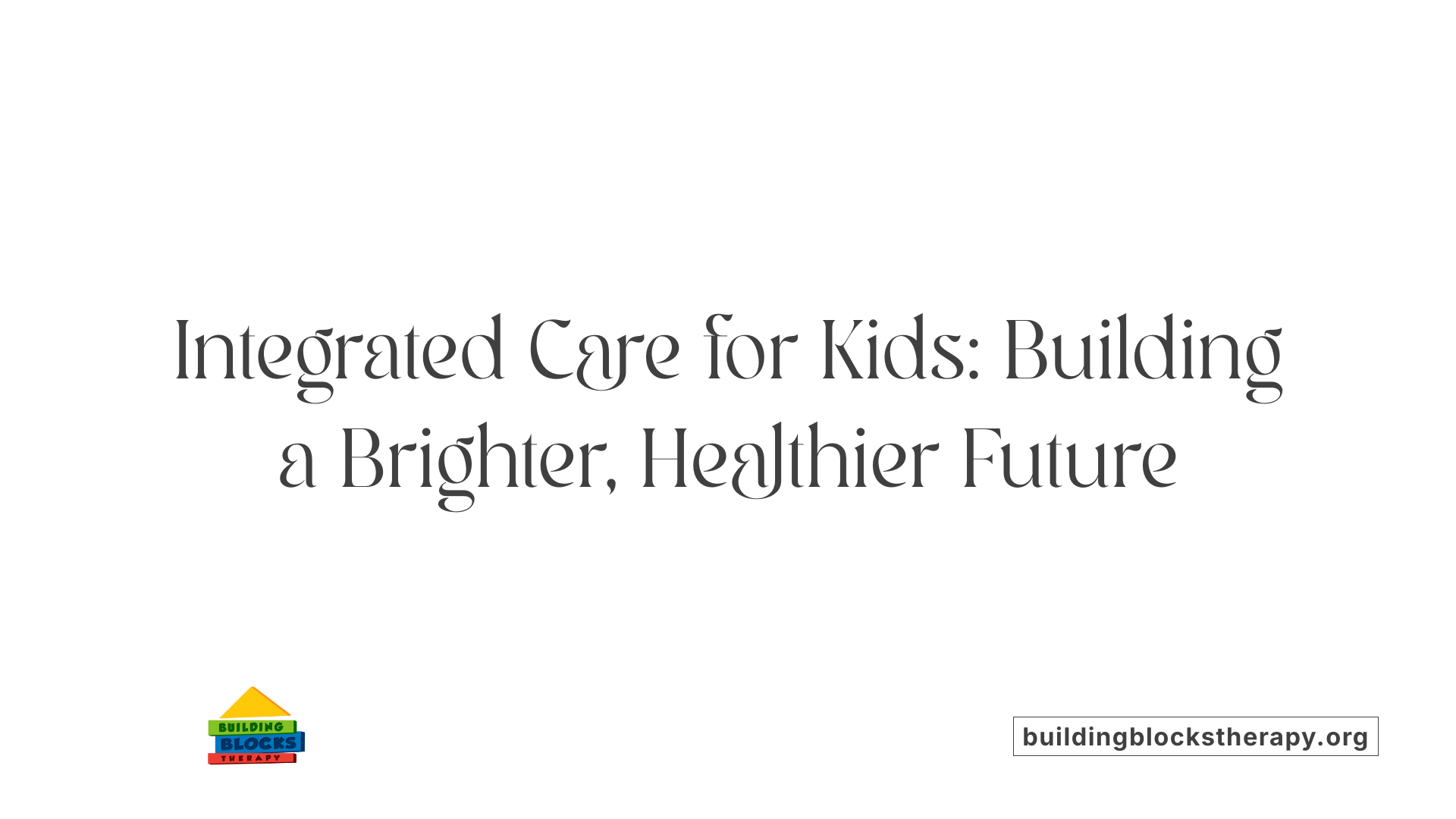
How can integrated psychological and health care approaches improve outcomes for children?
Integrated healthcare combines physical and psychological treatments to create a comprehensive support system for children. By addressing all aspects of a child's well-being—physical health, emotional stability, and social development—this approach promotes better overall outcomes.
One of the main advantages is that it provides personalized, family-centered care. When healthcare providers work together, they can tailor interventions to meet each child's unique needs, ensuring that no aspect of health is overlooked.
Trust and collaboration are central to this process. Child-friendly practices, involving parents and caregivers actively, foster stronger relationships and increase the likelihood of successful treatment. Digital health tools also enhance communication, helping different sectors—medical, social, and educational—stay aligned.
Research shows that integrated care improves mental health symptoms, boosts quality of life, and increases school attendance. Programs like TEAM UP have shown particular success in supporting marginalized groups, helping reduce disparities.
Impact on hospitalization and long-term development varies, but overall, children benefit from quicker recovery, better resilience, and healthier growth. This holistic model not only treats existing issues but also helps prevent future problems by promoting healthy habits across all areas of development.
By fostering a supportive environment and engaging families, integrated healthcare ensures children receive the right care at the right time, setting a strong foundation for lifelong health and well-being.
| Aspect of Care | Benefits | Additional Notes |
|---|---|---|
| Physical & Mental | Improved symptoms and overall health | Includes therapies like CBT and physical treatments |
| Family Involvement | Empowered families and tailored plans | Families participate actively in decision-making |
| System Coordination | Seamless communication among providers | Use of digital platforms enhances collaboration |
Understanding the importance of holistic and integrated approaches highlights how comprehensive pediatric care supports children in reaching their full potential and maintaining long-term health.
Insights into Holistic Treatments in Child Therapy
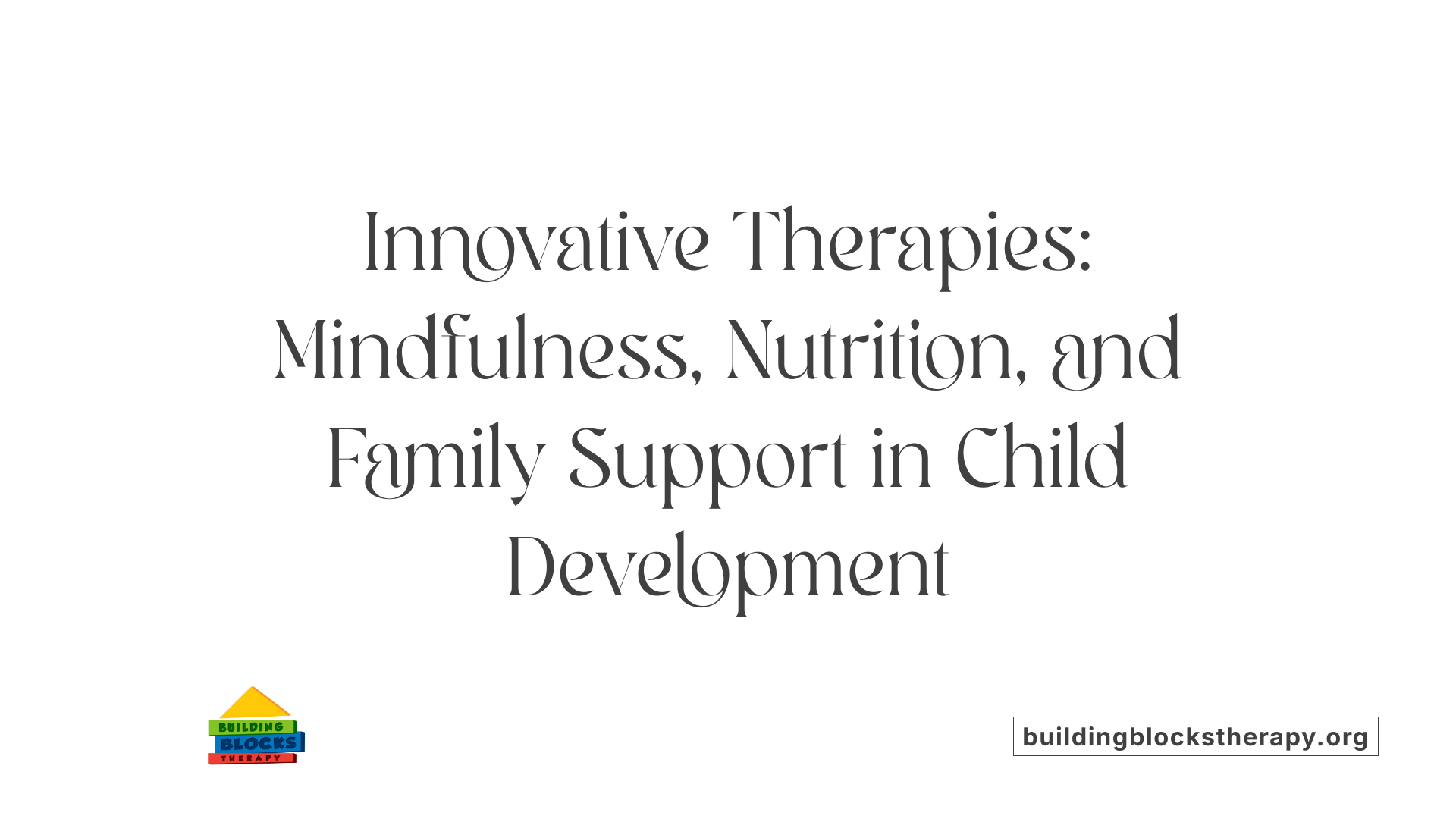
How do mindfulness, meditation, and sensory activities contribute to holistic child therapy?
Mindfulness and meditation are powerful tools used in holistic therapy to help children develop emotional regulation and reduce stress. These practices encourage children to focus on the present moment, cultivating awareness of their feelings and bodily sensations. Guided imagery and sensory activities, such as tactile play or calming smells, further support regulation by engaging the senses and promoting relaxation.
Engaging in sensory-based interventions can help children with sensory processing challenges, making therapy sessions more effective and enjoyable. These approaches foster a sense of calm and help children build resilience, emotional strength, and self-awareness.
What role do nutritional and natural therapies play?
Nutrition therapy emphasizes a balanced, nutrient-rich diet to support brain function, moods, and overall development. Key nutrients like omega-3 fatty acids from fish oil, antioxidants, vitamins, and minerals are vital for cognitive health and emotional stability. Deficiencies in nutrients such as B vitamins, vitamin D, A, magnesium, and healthy fats have been linked to attention difficulties, anxiety, and hyperactivity.
Natural therapies include dietary counseling, supplements, and practices like acupuncture, which support the body's natural healing processes. Maintaining gut health through probiotics and a diet rich in fiber can positively influence mood and cognition, reinforcing the mind-body connection integral to holistic care.
How do family and group therapies support overall well-being?
Family-centered therapy involves caregivers actively in the healing process, creating a supportive environment that reinforces positive behaviors and emotional growth. Family sessions foster communication, understanding, and collective problem-solving, helping children feel secure and understood.
Group therapies introduce children to peer support environments, where they can share experiences, develop social skills, and learn emotional regulation strategies. Topics like managing anxiety, building self-esteem, and coping with school stress are often addressed.
Integrated approach for better child health outcomes
Combining mindfulness, nutrition, and family or group therapies creates a comprehensive plan tailored to each child's unique needs. This integration champions a whole-child approach, nurturing physical health, emotional resilience, social skills, and mental well-being. It recognizes that addressing all aspects of a child's development results in improved adaptation, healthier relationships, and a more balanced, resilient future.
A Holistic Path to Lifelong Well-Being
Holistic approaches in pediatric therapy represent a vital paradigm shift towards supporting children comprehensively and sustainably. By integrating physical, emotional, social, and spiritual strategies, these methods nurture resilience, foster healthy development, and prevent future health issues. As research continues to illuminate their effectiveness, it is vital for caregivers, educators, and healthcare professionals to embrace holistic care principles. Such approaches ensure that each child receives personalized, compassionate support designed to promote lifelong health and happiness, ultimately leading to healthier communities and brighter futures.
References
- A Holistic Approach to Pediatric Therapy - Tumble N' Dots
- Top Holistic Mental Health Treatments for Children - Willow Wellness
- Holistic Healthcare Interventions for Children - Physiopedia
- Nurturing Holistic Mental Health for Children - CentreSpring MD
- The Benefits of a Holistic Approach to Pediatric Care
- Interventions to Support Integrated Psychological Care and Holistic ...
- Fostering Growth and Health: Holistic Approaches to Pediatric Care
- Top Holistic Mental Health Treatments for Children - Willow Wellness
- Holistic Therapies for Children | Taking Charge of Your Wellbeing






